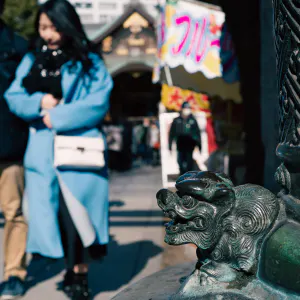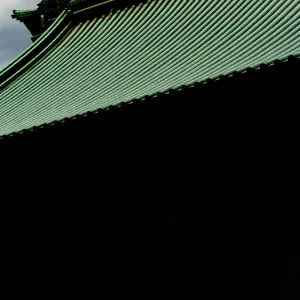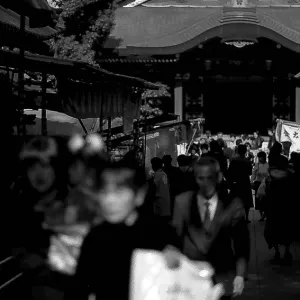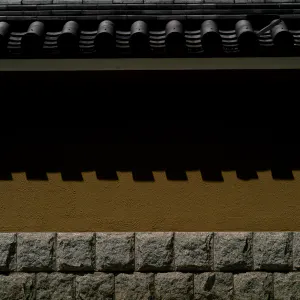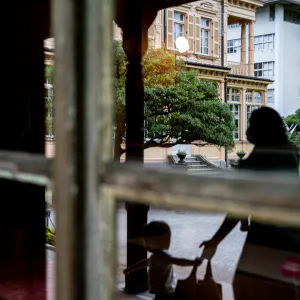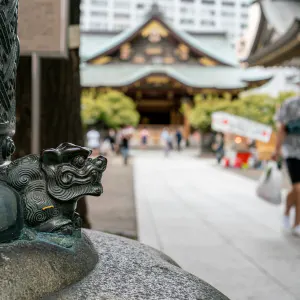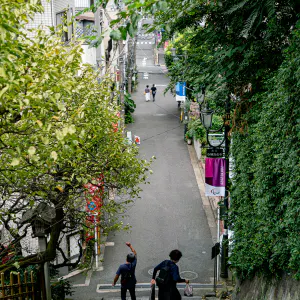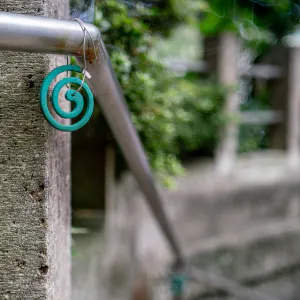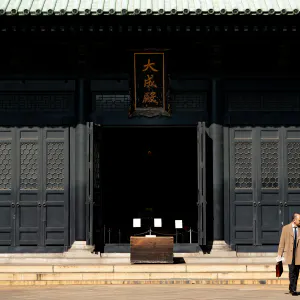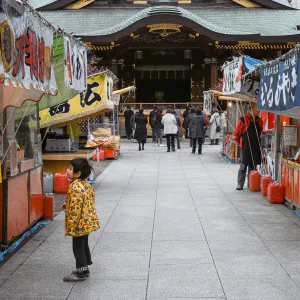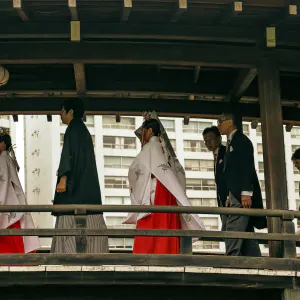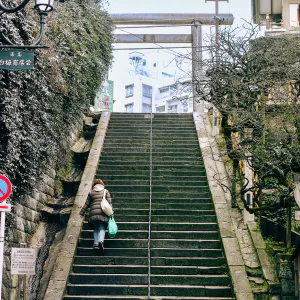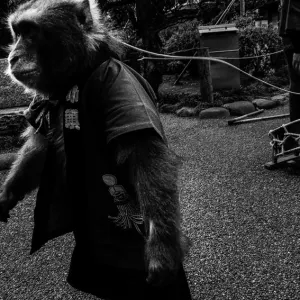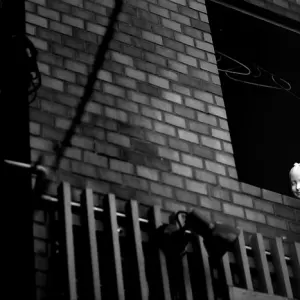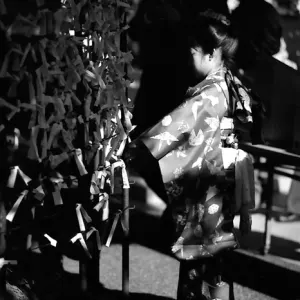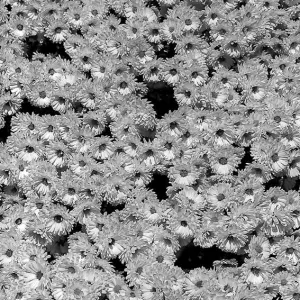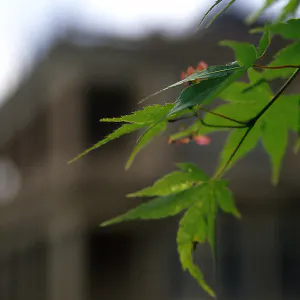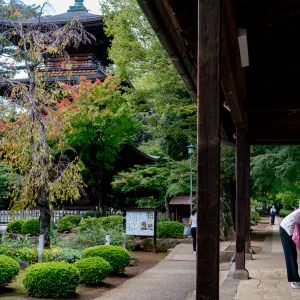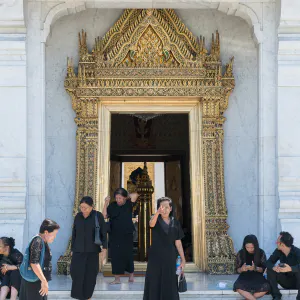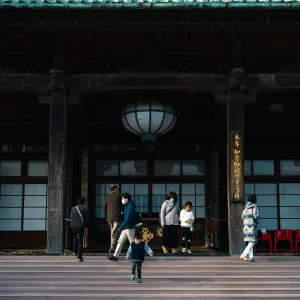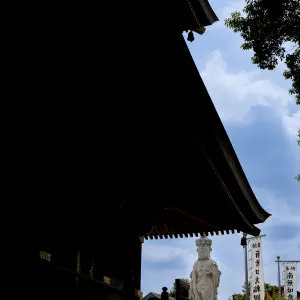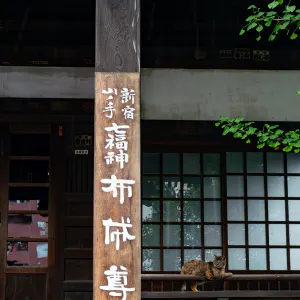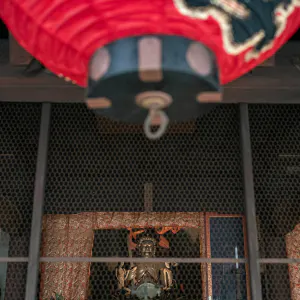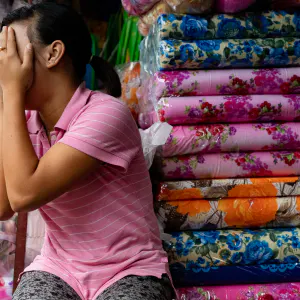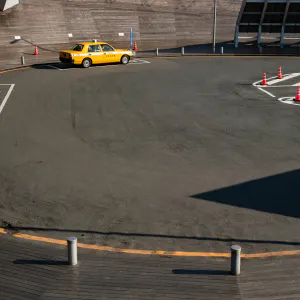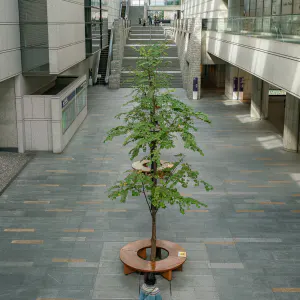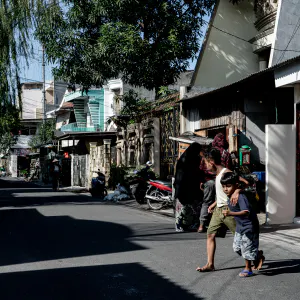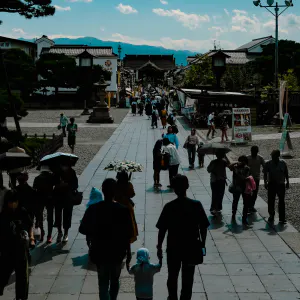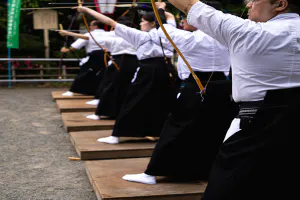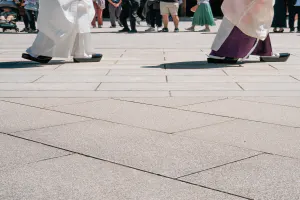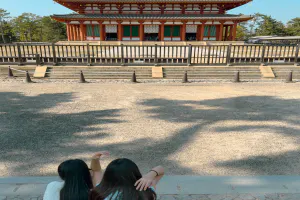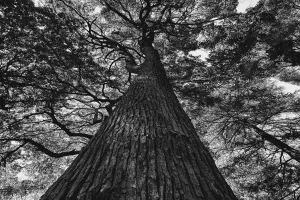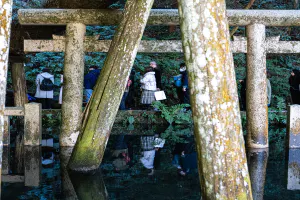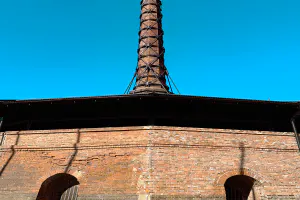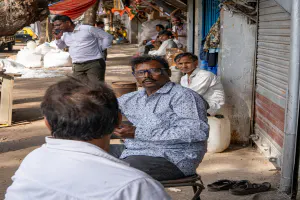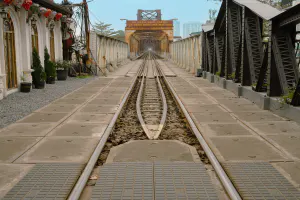The deep green Taiseiden Hall of the Yushima Seido has a majestic appearance that overwhelms one
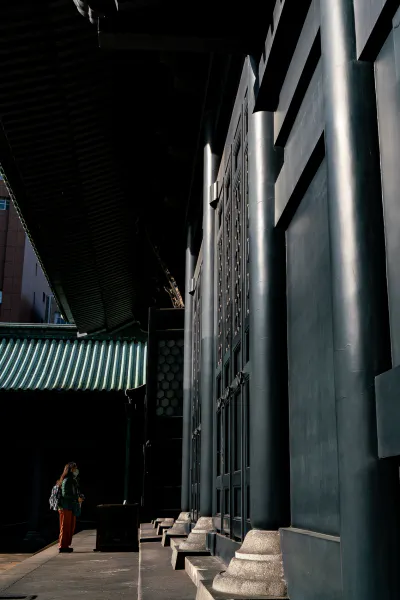
In the past, the Edo shogunate adopted a policy of Confucianism centering on Cheng–Zhu school, and even the academies under the direct control of the shogunate forbade lectures on different studies other than Cheng–Zhu school. Nevertheless, there is no mausoleum in Japan dedicated to Zhu Xi, who accomplished the systematization of Cheng–Zhu school (is there one in China?), and there are few Confucius temples dedicated to Confucius, the founder of Confucianism. This seems all the more strange when one considers that the common method of learning at temples and schools in the Edo period was for everyone to read the Four Books together without understanding the meaning. Although it could be said that he should be enshrined in a shrine because his knowledge of Confucianism was a symbol of the intellectuals of the time, this is not the case either. As such, the Yushima Seido in Yushima is one of the few Confucius shrines in Japan.
On the other hand, looking at Confucian cultural spheres outside of Japan, there are quite a few Confucius temples not only in China, the original birthplace of Confucianism, but also on the Korean Peninsula, Taiwan, Vietnam, and Malaysia. The reason for this difference may lie in the fact that while Japan adopted the laws and ordinance system and other systems from China, it did not adopt the system of Imperial examination system. In countries with an Imperial examination, the path to social advancement was to pass the examination and attain the rank of Scholar-official. In Japan, however, no such path existed, and few people may have seriously studied the Analects. As a result, perhaps not many Confucius temples were built to worship Confucius. In a sense, old Japan may have had an anti-intellectualistic aspect rather than an intellectualistic one.
| May 2023 IN THE CITY TOKYO | |
| HALL WORSHIPER YUSHIMA |
PHOTO DATA
No
12489
Shooting Date
Feb 2023
Posted On
May 11, 2023
Modified On
August 8, 2023
Place
Yushima, Tokyo
Genre
Street Photography
Camera
SONY ALPHA 7R II
Lens
ZEISS BATIS 2/40 CF
